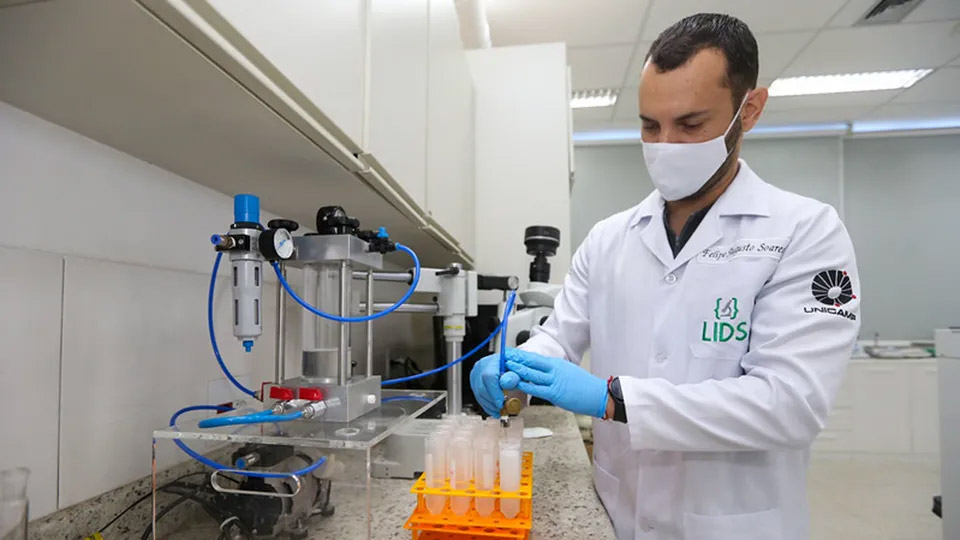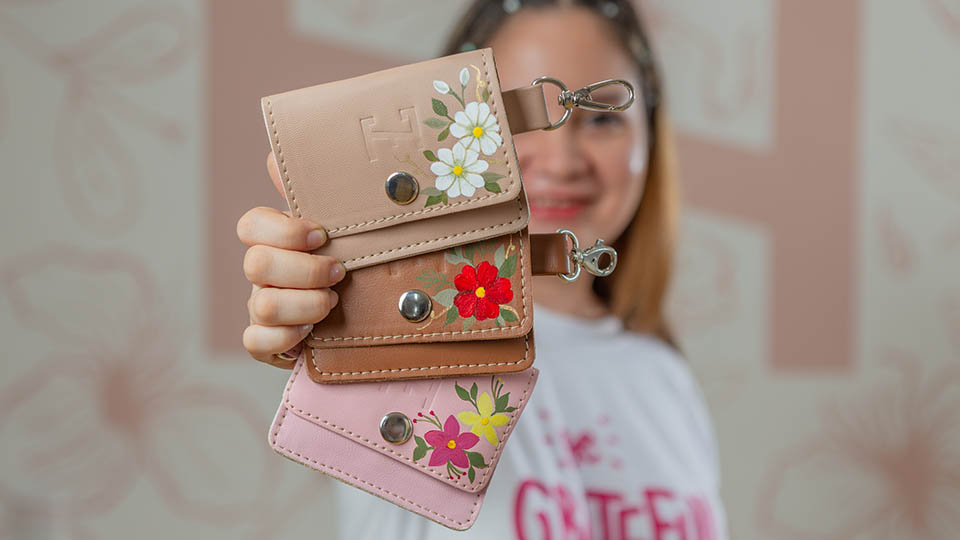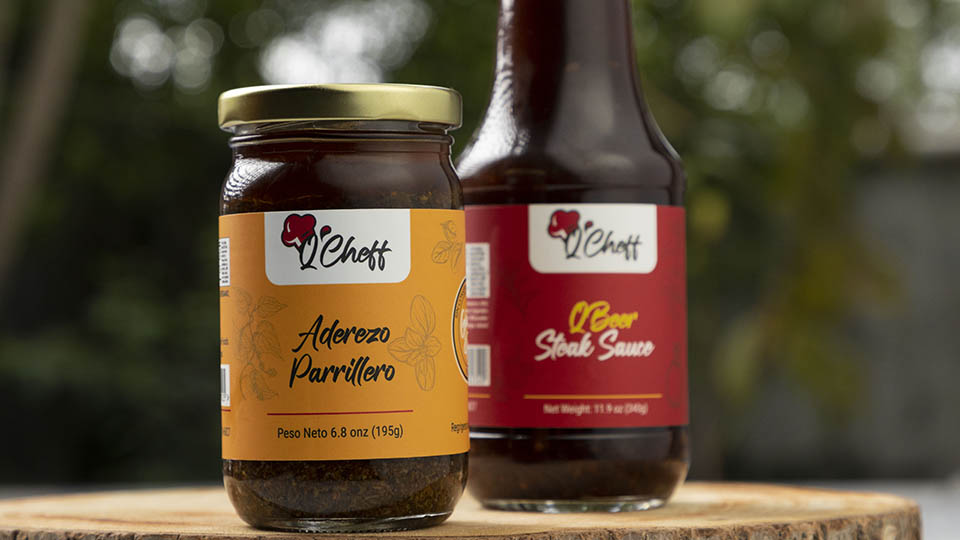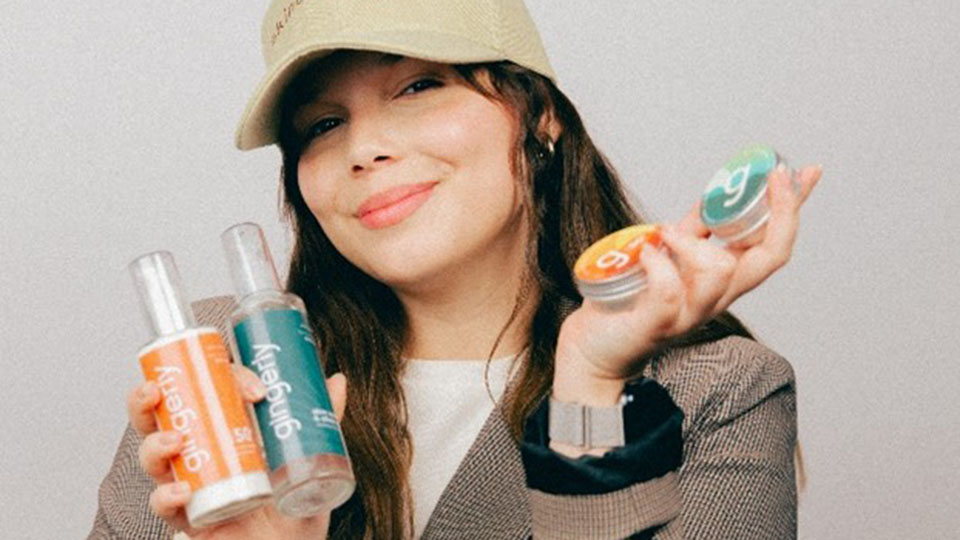Bringing Homes and Businesses in Sri Lanka to Zero-Waste Production
Most of the packaging in Sri Lanka ends up in landfills, polluting the earth and water. Himesh Fernando, the founder, and CEO of Chakra Suthra is set on reversing the trend and driving homes and businesses in the country towards a zero-waste practice.
The name of the company comes from Sanskrit: Chakra (circular), and Suthra (formula); the circular solution.

Himesh is a native of Matara, a coastal city in the South of the island where he grew up. Coming from a scientific family with a pediatrician father and a mother who was a nurse, he was always fascinated by science. “We always talked about science, and at one point I wanted to be a doctor, but that did not happen.”
He chose to study molecular biology and biochemistry at the University of Colombo before going to the United Kingdom on a scholarship to follow a Ph.D. program in genetics and molecular biology.
After his Ph.D. he worked for some biotech companies in Oxford, concentrating first on research, and further focusing on the business side of science. Some ten years ago, he came back to Sri Lanka to work on the commercialization of innovation.
In 2018 Himesh was selected for a three months Eisenhower Fellowship for Innovation and traveled to the United States to work on a social impact-related project. This fellowship was an opportunity to expand his horizons, meet new people, and learn about the circular economy, recycling, and sustainable business models. Building on the experience he gained while employed by Hemas Holdings in Sri Lanka where he worked on circular business models and sustainable packaging for Fast Moving Consumer Goods (FMCG) and the newly acquired knowledge, Himesh was ready to start his own business.
Two years later, in 2020, Chakra Suthra was born.
Trash 2 Cash Reverse Vending Machine

“Chakra Suthra, Saving the Planet, Monetizing Waste”
There is so much consumption and there is so much waste, said Himesh. “I saw a massive leakage of valuable material from homes and businesses going to landfills. However, with the right infrastructure, knowledge, and methods to divert it, all this valuable material could go into other products.”
“That is the problem we are trying to solve. How do you harness that value? By diverting it to somewhere else,” he said.
In 2021 a pilot project was launched, which ran for eight months, focusing on plastic recycling. The company started with the smart “Trash 2 Cash” plastic reverse vending machine in which people could recycle their plastic bottles and containers for cash. “We noticed that customers have recurring shopping habits and mostly go to the same supermarket every couple of weeks. So we wanted to change their behavior from ‘shop’ to ‘recycle and shop’. We selected a location in central Colombo, Union Place, a supermarket called Keells.
How to make money recycling with Trash 2 Cash Reverse Vending Machine
“Turning plastic waste into cash”
Consumers have to identify and sort recyclable material at home. When they go shopping, they take the sorted items with them.
Consumers have to accept the use of their phone numbers for communication. They then deposit all their containers into the reverse vending machine and get credit in the form of points, which they can redeem at Keells Union Place. They have one calendar month to redeem their accumulated credits. For each container, the consumer receives an average of 2 rupees, Himesh explained.
After an initial kick-start to help consumers familiarize themselves with the machine, “there was a fantastic uptake.” The machine became popular, even becoming a feature in social network selfies, Himesh said.
The machine can collect between 10,000 and 20,000 plastic containers per month.

The plastic collected is recycled by Chakra Suthra’s partners and is turned into polyester yarn, which will be woven into garments, as Sri Lanka has a large apparel industry, or exported in yarn form.
The pilot served to test the consumer proposition and the financial sustainability of the initiative, help improve the technology, and assess logistics and operations.
A One-Stop Solution with Extended Producer Responsibility in mind
“Business Model Reengineering”
Businesses have a big role to play in the zero-waste objective, according to Himesh, as they are trying to integrate sustainability into their business models. Chakra Suthra is not only a collection platform that facilitates the recycling of a company’s packaging, it also works with companies to select alternative packaging methods or alternative delivery solutions to get products to consumers without single-use packaging.
EPR or Extended Producer Responsibility (where manufacturers or brands take responsibility for their packaging) is recently being introduced in Sri Lanka. Since then, individual brands, and companies are embarking on piecemeal initiatives to collect one’s packaging. ”We have seen the legislation change in other parts of the world. It was only a matter of time before it was introduced in Sri Lanka” said Himesh. Chakra Suthra is offering them a one-stop solution through which brands’ customers are engaged to recycle through Chakra Suthra’s collecting machines. The practicality of that system has already attracted many companies, the most prominent one being Nestlé.
Social Innovations need IP Protection
At the end of the day, said Himesh, a social enterprise is still an enterprise that needs to be economically sustainable. “The important thing about a social enterprise is that you are creating an impact.” “We want to make a change in Sri Lanka and the region, and this is extremely important.” IP is what makes the initiative unique and exciting. It creates value in the startup that attracts investors. “It is also a collection of learnings and knowledge that creates a unique and profitable business model.”
Chakra Suthra’s name and logo are registered trademarks, and the company turned to trade secrets for business models and processes.
A Recycle Vending Machine in cryptocurrency for all types of waste
Chakra Suthra just completed its seed capital raise to start the second phase of its expansion. The pilot project focused on plastic but the company will now also be able to recycle different materials, such as glass and aluminum cans. Credit collected from the machines will no longer be points to be redeemed in one shop but in digital currency that consumers can use anywhere, and in any real or online shop.
In the next three to four years, the company hopes Trash2Cash collection machines will be installed all over Sri Lanka. Chakra Suthra also plans on expanding to countries in the region that have similar cultures, issues, and value chains. “We want to become the preferred recycling partner in the region.”



